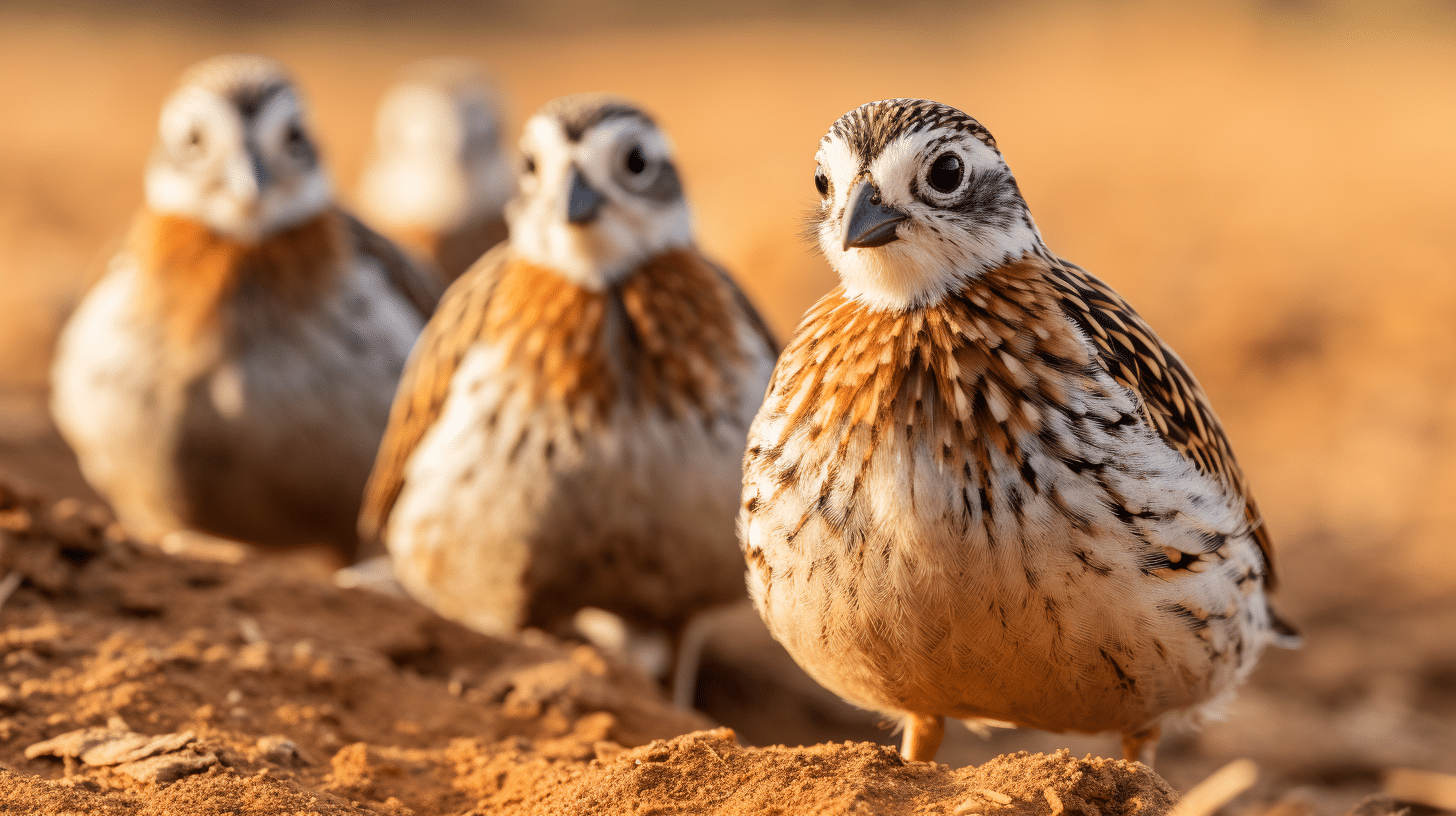Quail rearing in Kenya is on everyone’s mouth in Kenya after some Kenya TV stations highlighted the growing quail craze in Kenya. Late last year, most people in Kenya had come to learn of the possibility of rearing the quail bird in Kenya, and of the fast high returns of quail keepers in Kenya. Farmers in Kenya abandoned their earlier ventures to rear quails birds in Kenya. Some even left their well paying jobs in Kenya to engage in the quail million shilling venture. The quail rearing business in Kenya did provide good returns with a single quail egg in Kenya costing Ksh 120 and a full grown laying quail bird costing Ksh 1,200 in Kenya.
However, the quail market in Kenya seems to have slowed down and there are way more quail sellers in Kenya than quail buyers in Kenya. Quail keepers in Kenya do not seem to be earning as much as before and people are even claiming quail farming is a pyramid scheme in Kenya.The real problem with the quail business in Kenya, however, is that supply of quail products in Kenya has out stripped demand of quail products by far. There are steps that need to be taken by quail farmers in Kenya to help in the marketing of quails meat and quail eggs in Kenya. Some of these steps that can improve quail business in Kenya are;
Creating awareness to all Kenyans about Quails in Kenya
Quail keeping and consumption in Kenya is a relatively new thing and most people in Kenya only know it because of the amount of money people in Kenya claim to be making out of quail farming in Kenya. If you gave some people quail eggs in Kenya, they would claim they are snake eggs in Kenya, as they have not seen them before. The masses in Kenya need to be informed of the benefits accrued by consuming quail eggs and quail meat in Kenya. This could be done by giving free samples to your neighbors, workmates and relatives in Kenya and then encouraging them to buy quail products from you.
Lowering the prices of quail products in Kenya
The prices of quails and quail eggs in Kenya need to come down. This might appear counterproductive but it is the only way to go in Kenya. You as a farmer of quails in Kenya cannot expect a normal person in Kenya to buy a tiny quail egg for Ksh 100 in Kenya. It is unreasonable and makes quail and quail products in Kenya seem a reserve of only those wishing to rear them in Kenya. The pioneer keepers of quail in Kenya used to sell their eggs in their local areas for Ksh 20 only. When people learnt of how easy it is to rear quails in Kenya, and how fast quails start laying eggs in Kenya coupled with the numerous health benefits of quails in Kenya, a lot of people rushed to rear quails in Kenya. More people demanded quail chicks in Kenya, while the supply for fertilized quail eggs in Kenya to hatch was low in Kenya. Automatically, this caused the prices of all quail products in Kenya to shoot up to unbelievable levels in Kenya. More and more people in Kenya got into the quail business on seeing the insane prices quails and quail eggs were fetching in Kenya. The supply of quail eggs and quail products in Kenya has thus increased and demand is not as high as almost everyone who wanted to rear quails in Kenya has their quail chicks in Kenya.
It is time to create a quail market in Kenya for quail products for consumption and this can only be done if the prices of quails in Kenya are lowered to a level where everyone can afford them. Quails are easy to keep in Kenya and quail rearing in Kenya does not consume much money. It is therefore possible to sell quail eggs in Kenya for as low as Ksh 10 and still make profits in Kenya. The quail farmers should therefore get to reseaonable prices of quail eggs in Kenya, for more people to afford.
Forming Quail Farmers Groups in Kenya
Farmers rearing quails in Kenya can come together and form quail farmers groups in Kenya in order to learn from each other and to market quail products in Kenya together. Such quail farmers groups/chamaas in Kenya can help to eliminate middlemen from the quail business in Kenya as well as setting a reasonable standard price for quails and quail eggs in Kenya. A quail farmers group in Kenya can also involve itself in locating overseas quail markets as production of quails and quail eggs will continue to increase in Kenya. If quail farmers in Kenya employ these ideas in their quail rearing business in Kenya, they are bound to reap handsome returns from their investments in quail in Kenya.



0 comments